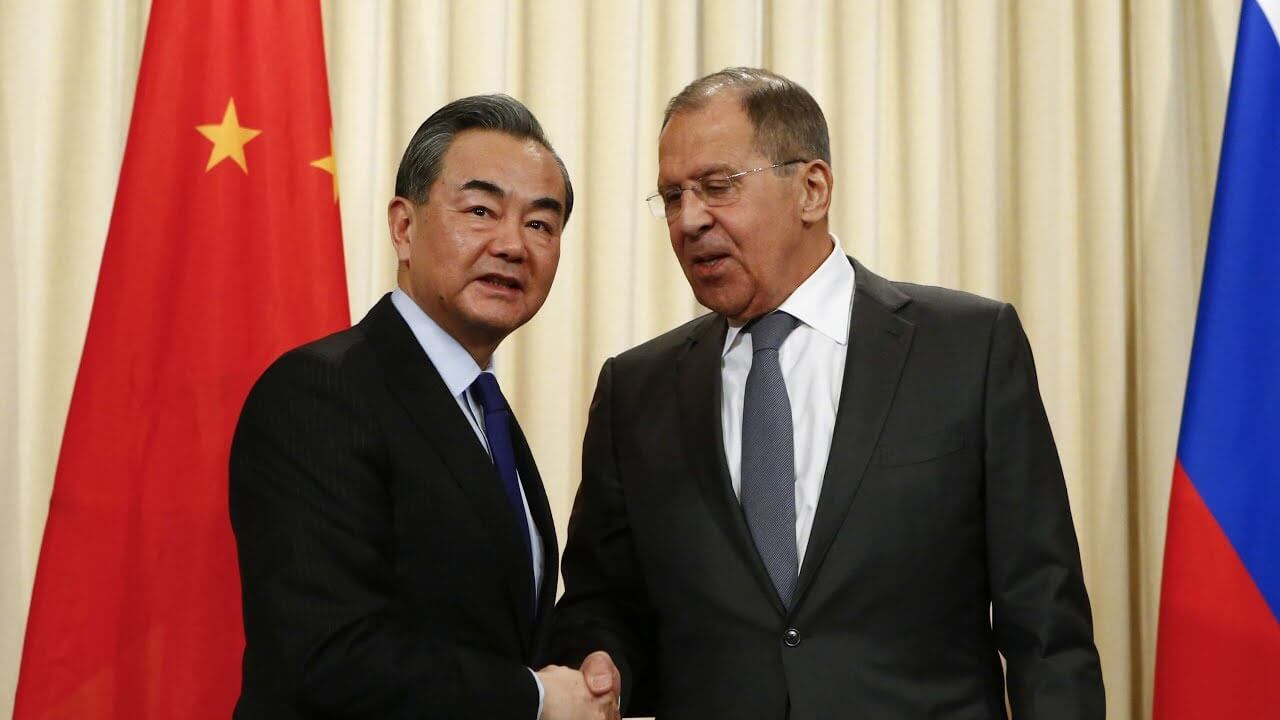On Monday, Russian Foreign Minister Sergei Lavrov arrived in China for his two-day visit. During his trip, Chinese Foreign Minister and State Councillor Wang Yi met with Lavrov in southern China’s popular tourist city of Guilin. According to Chinese Foreign Ministry spokesperson Hua Chunying, the ministers discussed several matters of mutual importance like the Iranian nuclear deal, the Afghan peace process, the military coup in Myanmar, the situation in Syria, climate change, and reform of the UN. However, the discussion was largely focused on the “bullying” activities of the United States (US).
Furthermore, Chinese state-owned media Global Times reported that both foreign ministers were of the opinion that the US must “stop its bullying activities, stop interfering in other countries’ internal affairs, and stop forming cliques to confront other countries” and “should follow the principle of the UN Charter to boost democratization of international relations.”
In an interview with the Chinese press following the meeting yesterday, when asked about the US’ meddling in the internal affairs of other countries, Lavrov said that the US, and the West in general, has “largely lost the skill of classical diplomacy” due to their frequent imposition of sanctions. Lavrov cited the example of United Nations (UN) Secretary-General António Guterres and UN High Commissioner for Human Rights Michelle Bachelet’s proposal to freeze sanctions during the pandemic in order to make essential supplies available to people. According to Lavrov, the West “fully ignored” the initiative, just as they ignored a proposal from President Vladimir Putin during the G20 summit last spring, which included the creation of green corridors in international trade that would be “free from sanctions and other artificial barriers”. In stark contrast to his view of the West, Lavrov added that “China is a truly strategic partner and a like-minded country for us. Our cooperation on the international stage is having a stabilising effect on the global and regional situation.”
Coincidentally, Lavrov’s visit comes only two days after the fiery China-US meeting in Anchorage, Alaska, where both delegations took aim at each other’s human rights violations. In the meeting, US Secretary of State Antony Blinken brought up China’s infringement of civil liberties and its violation of human rights in Xinjiang, Hong Kong, and Taiwan. He also accused China of orchestrating cyberattacks on the US and using economic coercion against American allies. In response, Yang asked the US to avoid pushing its own vision of democracy on the world, specifically since it has failed to deal with its own human rights problems.
In contrast to their cold relationship with the US, Russia and China have shared a warm diplomatic relationship historically. Last December, Russian and Chinese bomber planes undertook a joint patrol mission over the Sea of Japan and the East China Sea, demonstrating the strengthening of military ties between Moscow and Beijing. With both countries facing increasingly strained relations with the West, most notably with Washington—Russia for its annexation of Crimea, and accusations of interference in the 2016 US elections and China for its handling of the COVID-19 pandemic and its actions in Hong Kong, the South China Sea, and Xinjiang—Moscow and Beijing have hailed their “strategic partnership”.
Russia and China Agree to Take Aim at US “Bullying Activities” During Lavrov Visit
Russian Foreign Minister Sergei Lavrov is currently on a two-day visit to China, where he has engaged in discussions on US dominance, the Iranian nuclear issue, Syria, and Sino-Russian ties.
March 23, 2021

SOURCE: CCGTN
